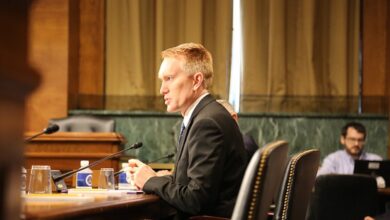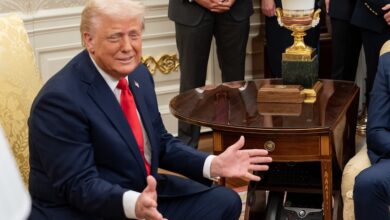US Supreme Court Affirms Americans Are Free to Pray in Public Meetings
 CHRISTIAN NEWS SERVICE — In a 5-4 decision, the U.S. Supreme Court Monday affirmed the freedom of Americans to pray according to their own beliefs at public meetings in the landmark religious freedom case Town of Greece v. Galloway.
CHRISTIAN NEWS SERVICE — In a 5-4 decision, the U.S. Supreme Court Monday affirmed the freedom of Americans to pray according to their own beliefs at public meetings in the landmark religious freedom case Town of Greece v. Galloway.
“The Court’s landmark decision today echoes the wisdom of the Founders,” said Eric Rassbach, Deputy General Counsel at the Becket Fund for Religious Liberty. “Not only did the Court uphold the centuries-old practice of legislative prayer, it also started the work of bringing the entire law of church and state onto a firmer foundation in the words of the Constitution.”
In a statement Russell D. Moore, president of The Ethics & Religious Liberty Commission, contends the Supreme Court made the right decision.
“I am very thankful the Court did the right thing . . . [t]his is a victory for all of those who believe in the freedom of speech, including religious speech, as a prized part of our God-given religious liberty,” Moore said. “Prayer at the beginning of a meeting is a signal that we aren’t ultimately just Americans. We are citizens of the State, yes, but the State isn’t ultimate. There is some higher allegiance than simply political process.”
Alliance Defending Freedom attorneys represent the town of Greece, N.Y. in the lawsuit. Lead counsel and allied attorney Thomas G. Hungar of the Washington, D.C. law firm Gibson, Dunn & Crutcher, LLP argued the case before the Supreme Court in November 2013.
“In America, we tolerate a diversity of opinions and beliefs; we don’t silence people or try to separate what they say from what they believe, said ADF Senior Counsel David Cortman. “Opening public meetings with prayer is a cherished freedom that the authors of the Constitution themselves practiced. Speech censors should have no power to silence volunteers who pray for their communities just as the Founders did.”
The Becket Fund for Religious Liberty, non-profit, public-interest law firm says it has been several decades since the Court has addressed the constitutionality of legislative prayer. Eric Rassbach, Deputy General Counsel at the Becket Fund, maintains that the Supreme Court’s decision confirms that permitting individuals of diverse faith backgrounds to join in prayer does not violate the Establishment Clause of the First Amendment.
“As a people we will always have disagreements about religion,” said Rassbach. “But that reality cannot be used as an excuse to banish religious activity entirely from public life. The Founders recognized that prayer is not a trivial matter, but plays a central role in the life of our nation. All the Court did today is repeat what the Founders said so many years ago.”
The Supreme Court’s ruling reversed an opinion of the U.S. Court of Appeals for the Second Circuit.






